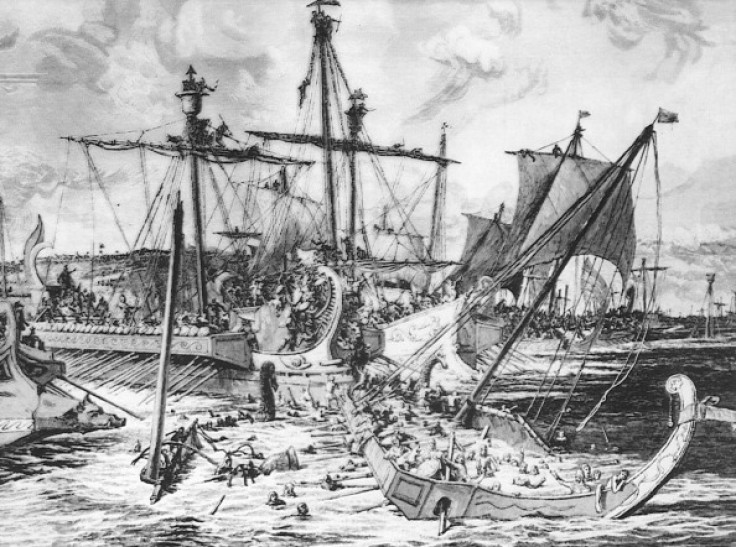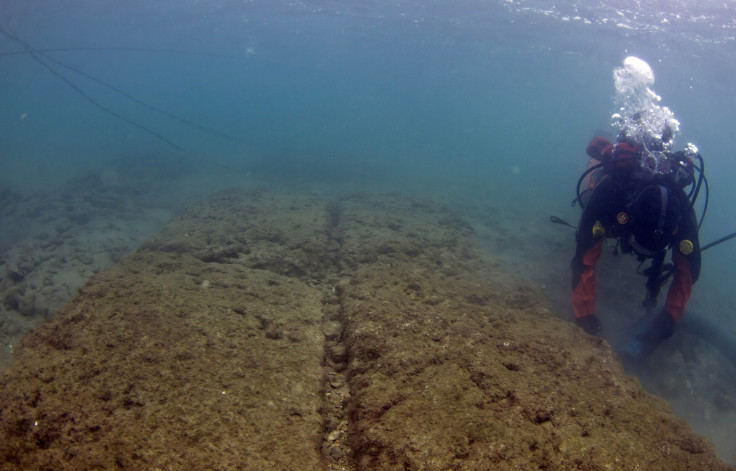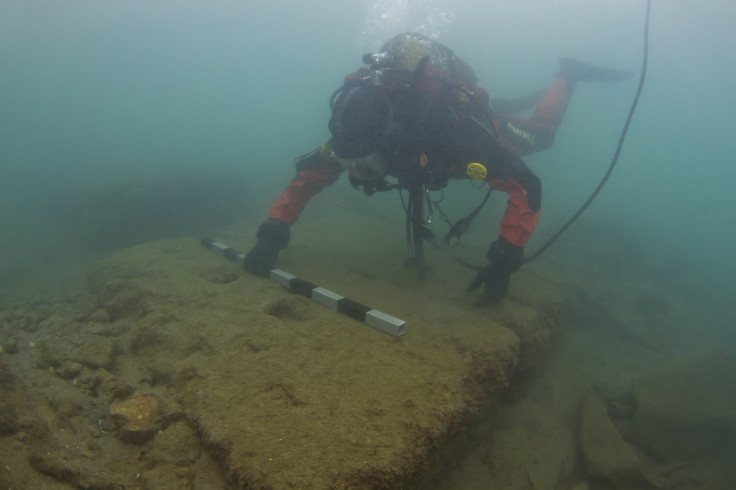Ancient Greek naval base key to Battle of Salamis discovered off Athens coast
Archaeologists discover 2,500-year-old base that was crucial to defences during antiquity.

A 2,500-year-old naval base has been discovered deep in the sea, off the coast of Athens, archaeologists have announced. The ancient structure played a crucial role in the defence of Greece during antiquity.
Since 2001, major excavation works - known as the Zea Harbour project - have been taking place near the port of Piraeus, Athens. However, because of a poor visibility in the harbour, the remains of the old naval base were found only recently hidden underwater in the marina of Mounichia.
Such a major naval base would have been key in a number of the major naval battles of antiquity.
The archaeologists believe it would have been used during the famous Battle of Salamis in 480BC against Persian forces.
Grandiose construction
With fortified walls and colossal ship containers for hundreds of Greek warships – known as triremes – the naval base would have been a very grandiose military complex protecting Athens.
"Visibility in the harbour is on many days down to 20cm, so we have had very poor working conditions, but we managed to finally locate the remains and excavate six ship houses," explains underwater archaeologist Bjørn Lovén, from the University of Copenhagen, who led the excavation. "They were used to protect Greek ships against woodworm and desiccation when they were not in use".

These ship containers are particularly big. The foundations were up to seven and eight metres high and 50m long.
Using carbon-14 dating on a piece of wood and analysis of pottery, the archaeologists dated the containers to around 520-480BC. These dates seem to confirm the fact that the naval base and the ship containers were used for the battle of Salamis, during the Persians wars.
Battle of Salamis
The decisive battle was probably the first great naval battle recorded in history. It was fought during the Persian wars in September 480BC in the straits at Salamis, between the island of Salamis and the Athenian port-city of Piraeus.

The Greek fleet was outnumbered, and only possessed about 370 triremes, while King Xerxes, who led the Persian forces, had a big fleet of nearly 800 larger galleys.
Nevertheless, they managed to win the battle, as Greek commander Themistocles lured the Persian fleet into the narrow waters of Salamis, where the massed Persian ships had difficulty manoeuvring.
They thus managed to attack and scatter the Persian fleet, delaying Xerxes' offensive against Greek cities who eventually united against him.
"This naval battle was a pivotal event in Greek history; it is difficult to predict what would have happened if the Greek fleet had lost at Salamis, but it is clear that a Persian victory would have had immense consequences for subsequent cultural and social developments in Europe. The victory at Salamis rightly echoes through history and awakens awe and inspiration around the world today", Lovén concludes.
© Copyright IBTimes 2024. All rights reserved.






